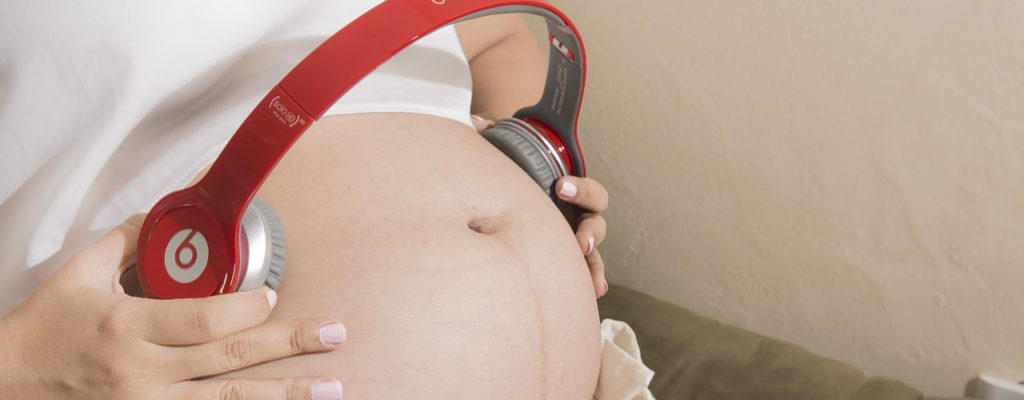
During pregnancy, many pregnant mothers often talk to their babies in their wombs. But when will your baby actually hear your voice or other sounds?
From the womb, fetus has developed quite completely hearing, especially can recognize parents' voices. How bad is it, please read the article below to find out about this issue!
The process of hearing development in the fetus
Week Fetal development
4–5 Cells begin to form the face, brain, nose, ears, and eyes.
9Dents will appear in the ear position.
18 Your baby begins to hear sounds.
24The baby becomes more sensitive to sound.
25–26 The baby responds to an outside sound.
Eye and ear formation will begin to develop in the 4th to 5th week of pregnancy as the cells inside the embryo are developing, starting to arrange themselves into the positions of the face, brain, nose, and eyes. and ears. By week 9, small indentations on the side of the neck appear. These dents then move forward and develop into ears.
After 18 weeks, the baby will hear the first sounds. By the 24th week, the pretty little ears gradually developed. Sound sensitivity will improve over time. The sounds that your baby hears while still in the womb are the sounds that you don't hear such as the beating of the heart, the sound of air moving in and out of the lungs, the sound of the stomach and the sound of the blood moving through. Umbilical.
When does the fetus recognize the parents' voices?
As the pregnancy gets older, more sounds will become apparent. Around 25 or 26 weeks, your baby is already able to respond to voice and noise. Many studies show that outside noise is reduced by half the volume when the fetus hears in the womb. That's because your baby's uterus is surrounded by amniotic fluid.
The most important sound the fetus hears is the mother's voice. In the late stages of pregnancy, the fetus has realized this.
Listening to music helps the fetus smarter?
There is no evidence that listening to classical music improves IQ. However, that also doesn't do any harm. In fact, the fetus can be exposed to normal sounds in everyday life while still in the womb.
However, long-term exposure to noise can cause hearing loss . If you regularly work in a noisy environment for long periods of time, consider changing jobs to keep your baby healthy.
Hearing in infants
Approximately 1–3 babies out of 1,000 have hearing loss. The reason is due to:
Premature birth ;
Incubation;
High bilirubin levels lead to the need for blood transfusion;
Certain drugs;
Genetic;
Frequent ear infections;
Meningitis ;
Very loud sound exposure.
Most babies who are deaf will be diagnosed through a test. Observe how your baby is showing.
The following are recommended actions for your baby's age:
From birth to about 3 months
Reacts to loud noises, even when the baby is breastfed;
Stay calm or smile when you talk to your baby;
Recognize your voice;
Cry different cries to signal needs.
From 4 to 6 months
Follow you;
Reaction to changes in parents' tone;
Reacting to toys causes loud noises;
Recognize music;
Prattle;
Laugh.
From 7 months to 1 year old
Turn around in the direction where the sound is generated;
Listen as you speak;
Understand a few words (dad, mom, shoes);
Babbling with attention-grabbing sound groups;
Babbling to attract attention;
Communicate by waving or raising your hand.
Each child learns and develops at its own pace. However, if parents find that your child does not have the symptoms that should be present in each age group, you should take the baby for testing.
Through the above sharing, you probably already know when your baby starts hearing sounds. If you feel any doubts or concerns, see your doctor right away.












